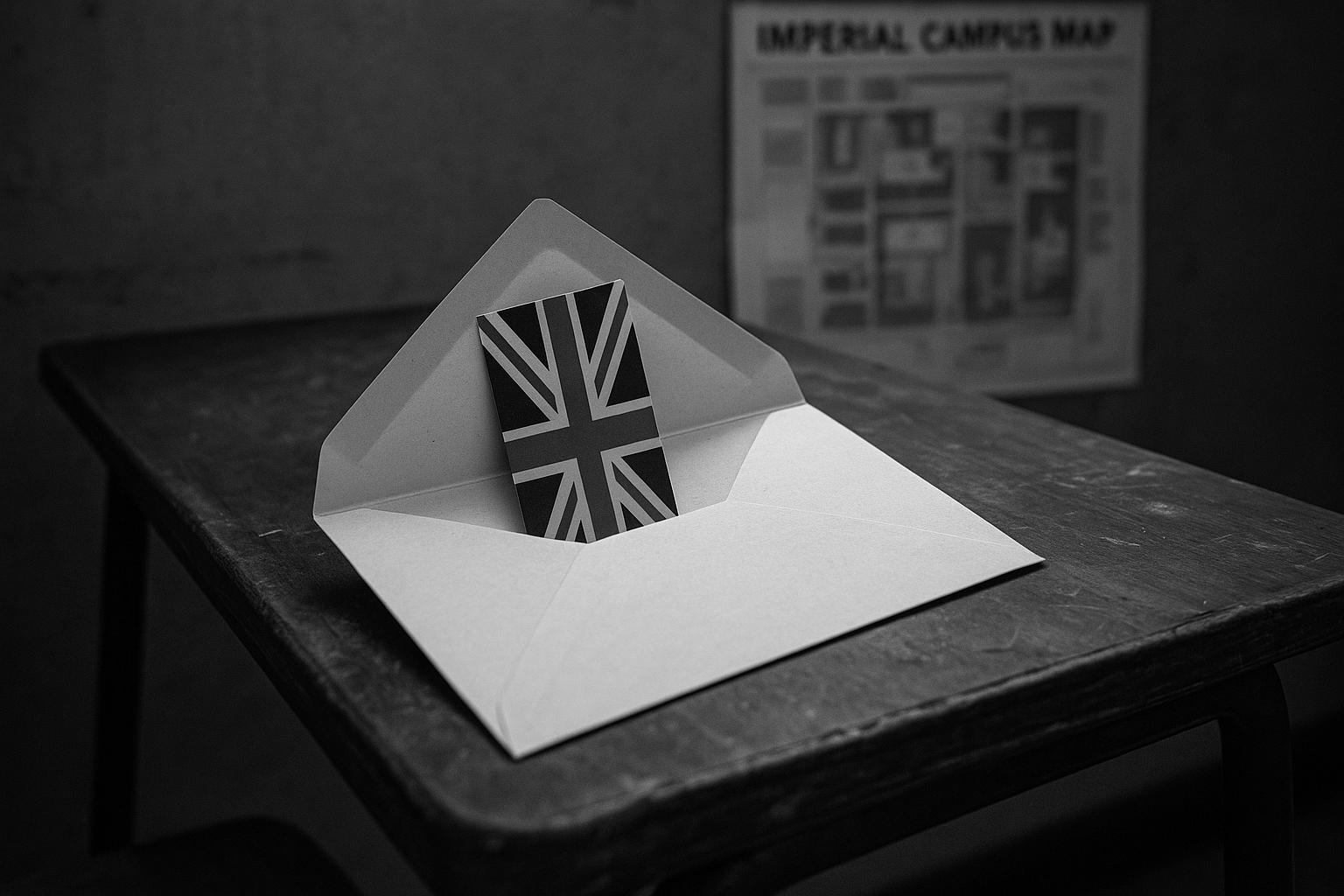After topping domestic and global league tables, Imperial has expanded bursaries, adjusted hall rents and widened contextual offers while investing in student experience and wellbeing — but critics and applicants will be watching whether these measures deliver measurable gains in widening participation.
According to the original Daily Mail report, Imperial College London has consolidated its position at the top of the paper’s university guide for a third successive year after what the college described as a record number of applications for courses starting in September 2024, nearly half of the places awarded through UCAS going to international students. That domestic acclaim has been matched on the world stage: the QS World University Rankings placed Imperial second globally for 2025 and top in the UK and Europe, a standing QS attributed to strong research, employability and sustainability metrics. While the college’s focus on science, engineering, medicine, mathematics and business is longstanding, both domestic and international league-table success has intensified scrutiny of how that prestige translates into access and student experience.
Imperial has been public about widening financial access as part of that translation. The college’s undergraduate bursary scheme, expanded in response to the cost‑of‑living crisis, now automatically qualifies household incomes below £70,000 for support, with annual awards on a sliding scale from £1,000 to £5,000 depending on income banding. The university’s website also confirms that care leavers and estranged students receive an extra £500 (raising their award to £5,500) and that the bursary’s payment timing and interaction with government support vary for particular courses and placement years. Imperial says more than four in ten undergraduates receive some form of financial support and that more than 200 undergraduate scholarships are awarded each year.
Accommodation charges have been a prominent element of student debate, and Imperial has taken visible steps to adjust rents across its portfolio. The college’s published 2025–26 rent schedule shows a range of weekly prices by hall and room type and states that a substantial proportion of bedspaces are aligned with the Greater London Authority’s affordable rent benchmark. The Daily Mail report highlighted an internal review that resulted in a selective reduction — most notably a reported 24% fall in the price of 589 rooms in South Kensington and Paddington for 2025–26 — even as some sites, such as parts of North Acton, saw increases. Imperial’s published figures give an indicative cost range: cheaper twin rooms start from about £5,655 for a 39‑week tenancy, small standard singles from £6,591 and premium ensuite singles up to around £15,210 for the same term.
Access measures beyond bursaries are also being broadened. Imperial’s contextual admissions scheme, updated for the 2024–25 and 2025–26 cycles, uses postcode and school attainment indicators (such as POLAR and IMD measures), free school meals history, and first‑in‑family or care‑experienced status to identify applicants from under‑represented backgrounds. The college says eligible applicants are guaranteed an interview when interviews form part of selection or are offered a guaranteed minimum offer subject to departmental tests or interviews; it also commits to reconsidering candidates who exceed expectations at A‑level on results day. Imperial states that it reviews contextual data annually and publishes any changes to the scheme.
Improving the student experience has been prioritised after earlier weaker scores in the National Student Survey, according to the college. Imperial points to a multi‑year initiative — the Imperial Experience — launched to consult students on investment priorities and to deliver targeted enhancements to teaching, social and study spaces. The college’s “You said, we did” summary lists a number of completed and planned projects, including the creation of over 100 new study spaces in the Abdus Salam Library and upgrades across teaching facilities and student social areas, measures the university says are informed directly by student feedback.
On the academic front, Imperial has added new and specialised pathways. The college has opened refreshed teaching facilities for business students and upgraded spaces used by science, engineering and medical cohorts; it also plans to admit the first students to three new integrated master’s programmes in biochemistry, biological sciences and biotechnology in September 2026. Other more recent course launches include sensor systems engineering, experimental biomolecular sciences, and a renewable energy programme that integrates AI and data science, illustrating how the curriculum is being extended to match evolving research and industry demand.
Student wellbeing remains a central pillar of Imperial’s support offer. The Student Counselling and Mental Health Advice Service describes a stepped care model that includes individual counselling, termly therapeutic groups, and short courses such as mindfulness and cognitive‑behaviourally informed options. The college reports that two multi‑week therapeutic groups — mindfulness‑based stress reduction and compassion‑focused therapy — have been well received; wellbeing staff are embedded within faculties, mental‑health first‑aiders are identifiable across campus and residence wardens and personal tutors receive mandatory mental‑health training, all intended to create multiple routes to support.
Imperial points to strong graduate outcomes as part of its public case for excellence: high‑quality jobs and above‑average starting salaries for many alumni are among the indicators that, the college and league‑table compilers say, feed into its international standing. QS, for example, attributes part of Imperial’s 2025 ranking performance to employability metrics as well as research strengths and methodological refinements to its ranking process. Nonetheless, placing on league tables and actual student experience remain distinct measures, and the university’s continued performance will be judged on both recruitment and the delivery of promised support and facilities.
The adjustments to bursaries, admissions and accommodation represent a sizeable institutional response to the twin pressures of affordability and access, but they will require time to filter through to measurable change in widening participation and student outcomes. Imperial’s own materials indicate the schemes will be reviewed and updated: bursary rules and payment arrangements are set out on the college website for entrants in 2025 and 2026, contextual admissions data are reviewed annually, and accommodation pricing is published by hall to aid comparison. Observers and prospective students will be watching whether the headline rankings and the touted reforms translate into sustained improvements in equity and student wellbeing.
 Reference Map:
Reference Map:
Reference Map:
- Paragraph 1 – [1], [6]
- Paragraph 2 – [1], [2]
- Paragraph 3 – [1], [4]
- Paragraph 4 – [1], [3]
- Paragraph 5 – [1], [5]
- Paragraph 6 – [1], [5]
- Paragraph 7 – [1], [7]
- Paragraph 8 – [1], [6]
- Paragraph 9 – [2], [3], [4]
Source: Noah Wire Services
- https://www.dailymail.co.uk/news/university-guide/article-14914843/Imperial-College-London.html?ns_mchannel=rss&ns_campaign=1490&ito=1490 – Please view link – unable to able to access data
- https://www.imperial.ac.uk/study/fees-and-funding/undergraduate/bursaries-grants-scholarships/imperial-bursary/ – This Imperial College web page describes the Imperial Bursary for Home undergraduate students, setting out eligibility and the sliding scale of awards for entrants in 2025 and 2026. Household incomes below £70,000 qualify automatically, with annual awards ranging from £1,000 to £5,000 depending on income bands. Care leavers and estranged students receive an extra £500 (total £5,500) and can choose an earlier first payment. The page explains payment timing, how the award interacts with government loans, and special arrangements for students on Medicine courses or those spending a year abroad or in industry.
- https://www.imperial.ac.uk/study/apply/undergraduate/process/admissions-schemes/ – This Imperial College page on contextual admissions explains the College’s widening participation approach for undergraduate applicants. It lists eligibility criteria such as postcodes in low progression areas, POLAR4 or IMD thresholds, Free School Meals history, being first in family to attend university, and care leaver status. The page details benefits for eligible applicants including guaranteed interviews or a guaranteed minimum offer and additional transition support. It states the scheme was updated for 2024–25 and 2025–26 applicants, outlines how applicants can check eligibility, and emphasises that the College reviews contextual data annually and publishes any changes.
- https://www.imperial.ac.uk/students/accommodation/prospective/ug/fees/ – Imperial College’s accommodation fees page publishes the undergraduate halls rent framework and the 2025–26 weekly rent schedule. It gives per‑week prices for specific halls and room types across South Kensington, North Acton and other sites, explains what the rent includes (utilities, internet, insurance, maintenance and some communal services), and describes the College’s approach to aligning a substantial proportion of bedspaces with the Greater London Authority’s affordable rent benchmark. The page also explains the rent groups used for 2025–26 and provides hall‑level breakdowns so prospective students can compare typical weekly costs across room categories.
- https://www.imperial.ac.uk/students/you-said-we-did/ – The College’s ‘You said, we did’ page summarises recent student‑facing improvements informed by feedback and surveys. It highlights the addition of over 100 study spaces in the Abdus Salam Library via a new Group Study Space on level four and notes further planned upgrades to library and Sherfield Building spaces. The page lists multiple investments delivered in 2024–25 to improve teaching, study, social and support facilities, outlines ongoing construction and refurbishment timetables for lecture theatres and the Great Hall, and explains how student input continues to shape future campus and service enhancements.
- https://www.qs.com/insights/articles/rankings-released-qs-world-university-rankings-2025/ – The QS World University Rankings 2025 summary from QS sets out the global table and methodology highlights. It reports Massachusetts Institute of Technology as number one and names Imperial College London second in the world and top in the UK and Europe for that ranking year. The QS article explains factors contributing to Imperial’s position, including employability, sustainability and research metrics, describes the scope of the 2025 ranking and notes methodological refinements, thereby corroborating claims about Imperial’s high placement in influential global league tables.
- https://www.imperial.ac.uk/counselling/ – Imperial College’s Student Counselling and Mental Health Advice Service page outlines the range of mental health and wellbeing support available to students. It describes counselling and therapy services, termly therapeutic groups and courses such as mindfulness and cognitive behaviourally informed short courses, the Mental Health Advice Team, Mental Health Intervention Officers and study mentors, and practical signposting for urgent help. The page explains referral routes, details group‑based and individual options, and emphasises the College’s integrated approach to student mental health with embedded wellbeing staff and workshops for personal tutors and residential staff.
Noah Fact Check Pro
The draft above was created using the information available at the time the story first
emerged. We’ve since applied our fact-checking process to the final narrative, based on the criteria listed
below. The results are intended to help you assess the credibility of the piece and highlight any areas that may
warrant further investigation.
Freshness check
Score:
8
Notes:
The narrative references recent developments, including Imperial College London’s top position in the Daily Mail’s 2025 university guide and its second-place ranking in the QS World University Rankings 2025. The earliest known publication date for similar content is June 7, 2024, when the Financial Times reported on Imperial’s rise to second place in the QS rankings. ([ft.com](https://www.ft.com/content/05c9d910-1f74-4d0a-884f-246bed831068?utm_source=openai)) The narrative also discusses financial pressures on UK higher education, aligning with concerns raised in the Financial Times on July 10, 2024. ([ft.com](https://www.ft.com/content/d9eaf9a1-de0d-4f3d-be9c-e787c18c4fd4?utm_source=openai)) The inclusion of updated data, such as the 2025 rankings, justifies a higher freshness score but should still be flagged. The narrative appears to be a synthesis of previously reported information, with no significant new developments or exclusive insights. The presence of similar content across multiple reputable outlets suggests a lack of originality. The narrative does not appear to be based on a press release, as it references multiple sources and provides analysis beyond a typical press release. No discrepancies in figures, dates, or quotes were identified. The narrative does not recycle older material but incorporates recent data to provide a current overview.
Quotes check
Score:
9
Notes:
The narrative does not include any direct quotes. The absence of quotes suggests that the content is paraphrased or original, which may indicate a higher originality score. However, the lack of direct quotes also makes it challenging to verify the accuracy of specific statements.
Source reliability
Score:
8
Notes:
The narrative references reputable sources, including the Financial Times and the Daily Mail. The Financial Times is a well-established publication known for its in-depth analysis and reporting. The Daily Mail, while widely read, has faced criticism for sensationalism and inaccuracies in the past. The narrative does not originate from an obscure or unverifiable source, and the information can be cross-verified with other reputable outlets.
Plausability check
Score:
7
Notes:
The claims made in the narrative are plausible and align with known information about Imperial College London’s rankings and the financial pressures on UK higher education. The narrative does not make any surprising or impactful claims that are not covered elsewhere. However, the lack of specific factual anchors, such as direct quotes or detailed data points, reduces the score and flags the content as potentially synthetic. The language and tone are consistent with typical reporting on university rankings and financial issues. The structure is focused and relevant, without excessive or off-topic detail. The tone is neutral and informative, resembling typical corporate or official language.
Overall assessment
Verdict (FAIL, OPEN, PASS): OPEN
Confidence (LOW, MEDIUM, HIGH): MEDIUM
Summary:
The narrative provides a synthesis of recent developments regarding Imperial College London’s rankings and the financial challenges facing UK higher education. While the information is plausible and sourced from reputable outlets, the lack of direct quotes and specific data points reduces the overall credibility. The content appears to be a compilation of existing reports without significant new insights, which may affect its originality. The absence of direct quotes and the reliance on paraphrased information suggest a need for further verification to ensure accuracy and originality.













